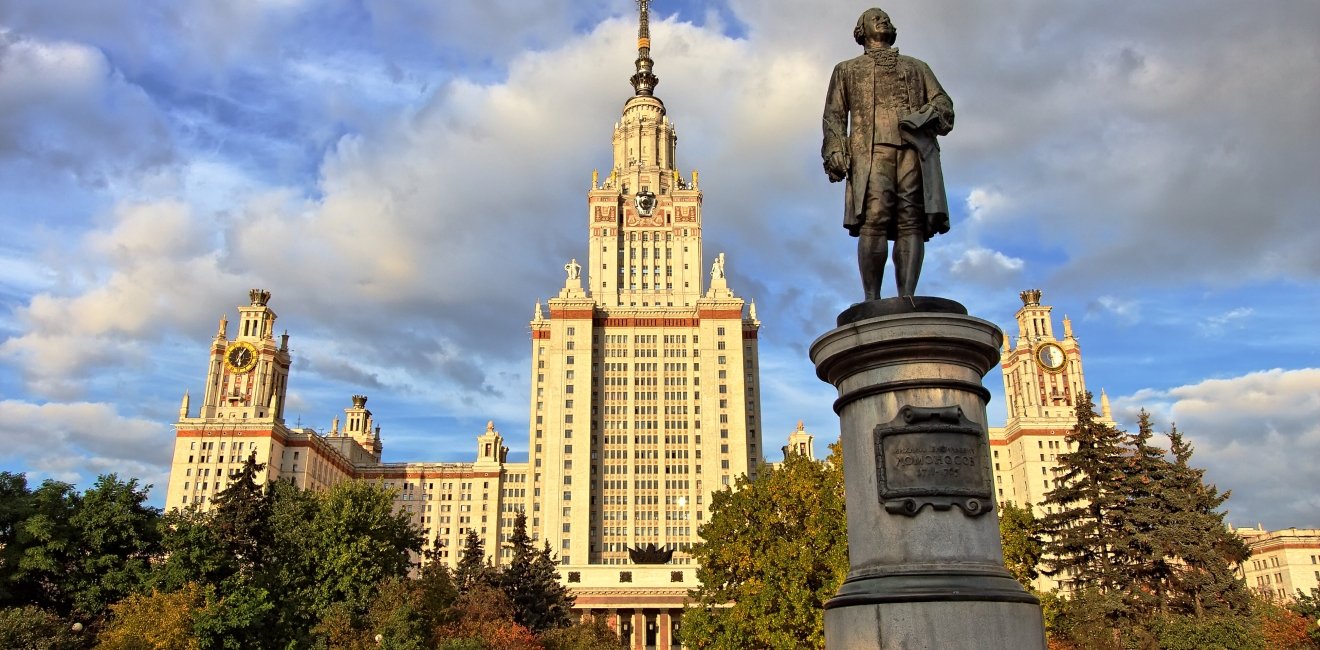Russian Higher Education’s Identity Crisis
Russian academia has drawn increased attention from the international academic community in the past year, though not always for groundbreaking research or the prestige of individual institutions.

A blog of the Kennan Institute
Russian academia has drawn increased attention from the international academic community in the past year, though not always for groundbreaking research or the prestige of individual institutions.

BY VICTORIA PARDINI
Russian academia has drawn increased attention from the international academic community in the past year, though not always for groundbreaking research or the prestige of individual institutions. Earlier this month, Science Magazine reported that Russian journals were forced to retract more than 800 papers following allegations of plagiarism.
The news came less than six months after the Ministry of Sciences and Higher Education ordered Russian professors to report on their meetings with foreign scientists and academics. The “recommendation,” condemned by both the Russian Academy of Sciences and the international academic community, was billed as an attempt at preventing subversion in the sciences and the possible release of state secrets.
The recent scandals signal the growing pressures in academia as a result of the discrepant mandates imposed by the administration. The higher education system is rife with contradictions, and the recent issues cast into sharp relief the problems individuals and institutions face as they struggle to meet the changing demands of their industry.
The latest reforms in higher education began in 2012, when, as part of the May Decrees, President Vladimir Putin announced goals for higher education in Russia. These goals eventually evolved into the “5-100 Project,” designed to put five Russian universities in the top 100 universities globally by 2020.
To achieve these goals, the Ministry of Sciences set baseline standards to “internationalize” Russian universities. The universities selected to participate in the project—among them the Higher School of Economics and the People’s Friendship University in Moscow, as well as more far-flung picks such as Tomsk State University and South Ural State University—were required to meet specific standards that the Ministry of Sciences believed best exemplified a healthy, international university.
These goals set publication minimums for scholars, along with foreign student enrollment targets and foreign faculty hiring targets. While the universities selected received government funding to accomplish these goals, which required building additional infrastructure to accommodate foreign students, the new parameters applied to all universities in Russia.
Universities were also required to undergo an annual review during which they would be evaluated as “passing,” “tentatively achieving,” or “failing” to achieve the targets. Universities that did not make the cut were be shuttered or merged into a larger regional university, resulting in significant negative ramifications not only for the culture of the university town but also for the economic situation of universities in remote areas of Russia.
Universities already operating on shoestring budgets had to find innovative ways to attract foreign students to their institutions. Meanwhile, academics, already famously underpaid in Russia, had to sharply increase their publishing output to match that of their peers in other countries. One result: from 2012 to 2017, output indexed in the Scopus database more than doubled for Russian universities.
Yet even as the Russian government was increasingly incentivizing participation by foreign scholars, domestic scholars did not see any real salary increase, despite upping their publication numbers and seeking out new international collaborations. Instead, they were held to the same arbitrary output and partnership standards without any financial rewards for their work.
In light of the 5-100 Project’s goals and Russian researchers scrambling to meet those goals under less than salubrious circumstances, why would the Ministry of Science and Higher Education suddenly issue a recommendation that would reverse that trend? After making funding available for foreign scholars to study in Russia—and severely penalizing institutions that could not meet the new standards of “internationalization”—why would the ministry throw up a stumbling block to not only foreign scholars but also its own academics doing research in Russia?
Ultimately, the strategy the Ministry of Science is engaged in is a self-perpetuating cycle of aspiration, sudden retrenchment, ham-handed correction, and new aspiration. The project and other attempted reforms aim to create a halo of prestige around Russian universities. To this end, universities were expected to point to partnerships with prolific researchers around the world. Yet a bedrock suspicion of foreigners, newly underscored by the recommendation to report foreign contacts, forces these same researchers out of the country. And the pressure on Russian academics to publish, without much oversight or review of the content, inevitably weakens the reputation of a higher education domain seeking to rebuild.
The combined outrage over these two scandals might imply a change of course for the ministry, with better alignment in the future of policies and practices affecting higher education and the sciences. Yet it is difficult to imagine that the sort of scientific and educational cooperation seemingly envisioned by the Ministry of Sciences, one modeled after exchange and cooperation projects during the Cold War, would ever be feasible, even apart from the new round of plagiarism charges. Several reasons weigh in here.
First, as tensions have escalated between Russia and the West, Track 2 programs and public diplomacy efforts such as educational exchanges have been among the earliest casualties. Programs that might have made it possible for Western academics to move to Russia temporarily to teach physics at Moscow State University, for example, have been closed by both the Russian government and its foreign counterpart in such arrangements over the past decade. Accepting a teaching position in a foreign country is simply not an effective career move for all but the most junior academics, and the prestigious foreign scholars that the 5-100 Project hopes to attract are unlikely to jump at an opportunity to teach at a Russian university.
This leads to a second reason, the ignominious state of Russian universities. Many regional universities are currently plagued with infighting and the usual tensions between the old and new guards. The healthier institutions simply cannot offer the same incentives to teach as a Western university might. American academics struggle to find departments in Russian universities that could offer them anything similar to tenure, and the Russian academics already in those departments are feeling the push to publish as much as possible as quickly as possible, often while earning a fraction of what their American and European counterparts might make.
Finally, forcing a university to fit itself into an arbitrary ranking system crafted by a ministry will never be an effective method of building prestige. Of course, many higher education institutions the world over are subject to the whims of their respective ministries; Russia’s system is not particular in this regard. But Russia’s Ministry of Education is sending conflicting signals. It needs to decide what is most important – creating institutions that support innovation and collaboration with experts from around the world, or creating universities that educate and train future professionals but are ultimately at the mercy of the larger geopolitics.
The scandal over the requirement to report on contacts with foreigners is merely a symptom of the identity crisis the Russian system of higher education is enduring as its managers continue to press for prestige over a cohesive, long-term strategy for national higher education.


After more than 50 years as a vital part of the Wilson Center legacy, the Kennan Institute has become an independent think tank. You can find the current website for the Kennan Institute at kennaninstitute.org. Please look for future announcements about partnership activities between the Wilson Center and the Kennan Institute at Wilson Center Press Room. The Wilson Center is proud of its historic connection to the Kennan Institute and looks forward to supporting its activities as an independent center of knowledge. The Kennan Institute is committed to improving American understanding of Russia, Ukraine, Central Asia, the South Caucasus, and the surrounding region through research and exchange. Read more




